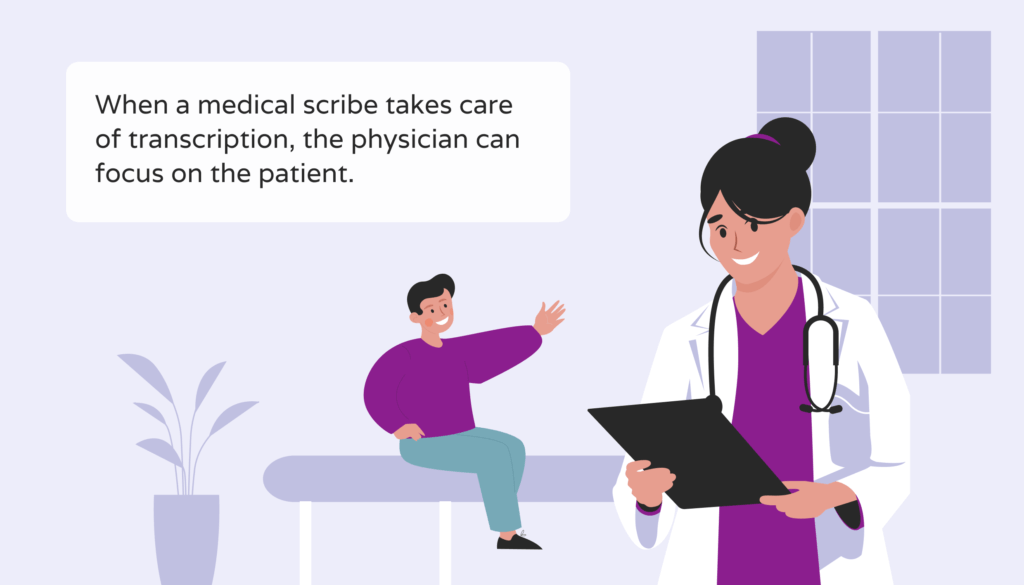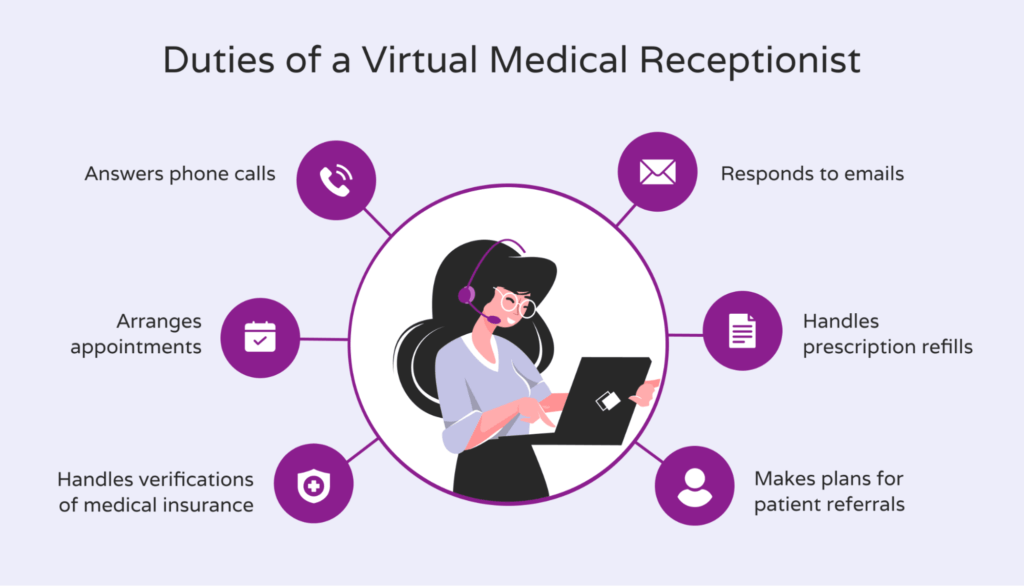Physicians play an important role in the healthcare system. They build relationships with their patients and diagnose and treat a range of conditions.
If you’re one of the 1,073,616 active physicians in the US, providing high-quality patient care will be a priority.
However, juggling a busy patient schedule with clerical tasks can be time-consuming. Your job satisfaction can suffer when you have too many things on your to-do list.
Fortunately, help is available. A medical scribe can be with you during each appointment and take care of the medical documentation.
Can't decide if a medical scribe is right for your practice? We've put together the following guide to show you how these documentation assistants can help physicians.
What is a medical scribe?
Medical scribes are present during appointments with patients. They support medical professionals by transcribing information and updating patient files in real-time.
Medical scribes have excellent computer skills and follow all HIPAA documentation guidelines.
They can be found in a range of healthcare settings, including private practice and emergency departments.
Whether you're a primary care physician or someone working in emergency medicine, a medical scribe can reduce your workload. A good scribe will take care of your clerical responsibilities and let you get back to the practice of medicine.
Most medical scribes have completed a medical scribe program. They'll usually have scribe experience and a background in healthcare. For example, your scribe could be a medical student, nurse, or physician assistant.
Looking for a reputable medical scribe company? We have a remote solution. Our virtual medical scribes are trained and ready to work with any healthcare worker. Contact us today to learn more.
How can a medical scribe help a physician?
Want to spend more time with patients and less time on clerical tasks? A medical scribe can support your practice.
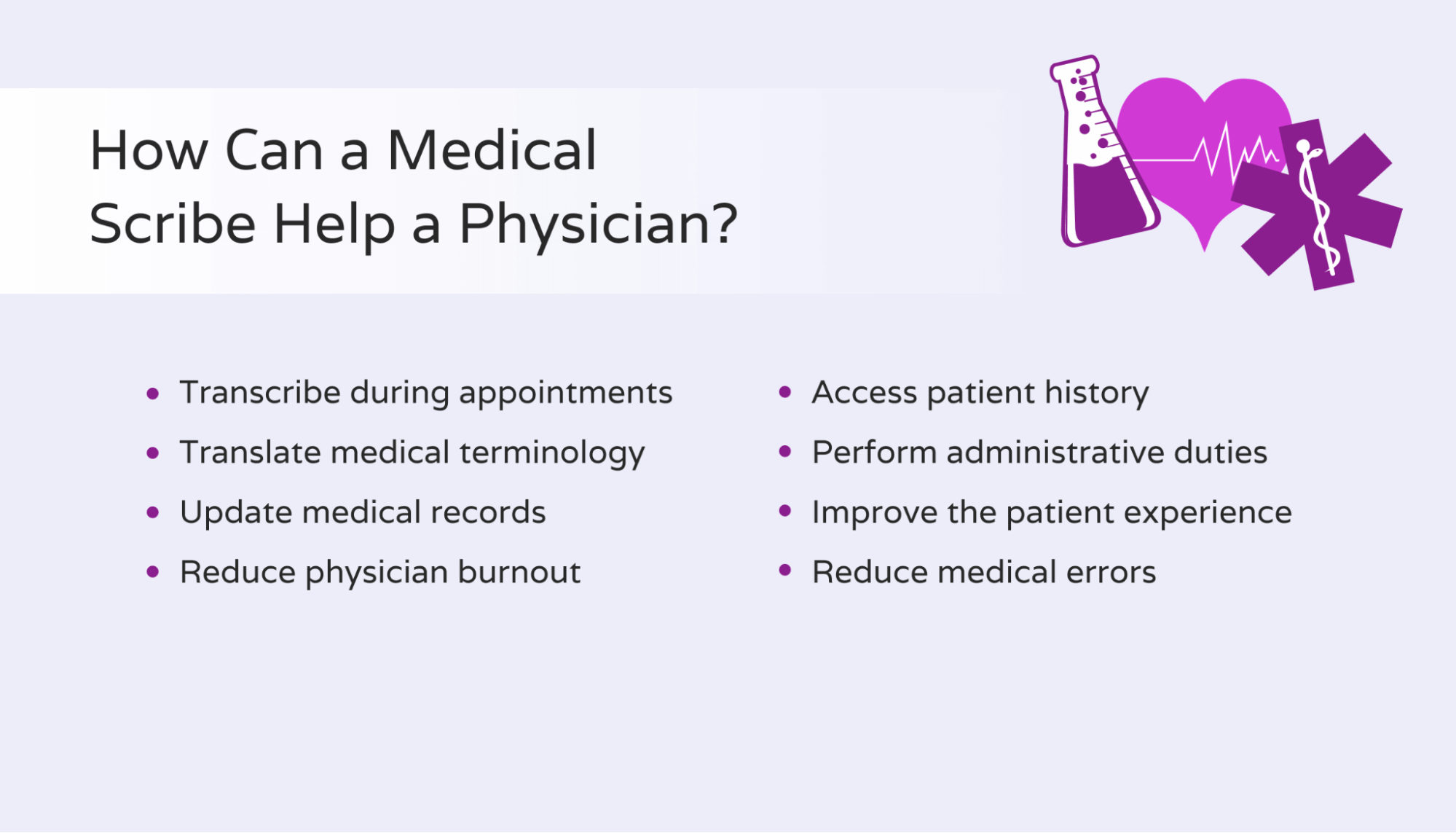
The impact of scribes in any care setting can be positive. Here are eight ways a medical scribe can help a physician.
1. Transcribe during appointments
A medical scribe can be with you during each patient visit. They take notes in real-time, so you don't have to. This means you can go from one patient to the next without having to deal with a pile of paperwork.
When you use a medical scribe, it can improve the efficiency of your physicians. You'll get access to detailed documentation while you focus on providing direct patient care.
Whether it's a specialist referral letter, new prescription, or treatment plan, no detail will be missed.
Using a scribe is a patient-centered approach. Plus, the physician can leave work on time each day knowing everything is up to date.
2. Accurate note-taking (including medical terminology)
Medical scribes understand complex medical terminology. They usually have a background in healthcare, such as experience in clinical medicine or nursing.
Physicians don't have to change their language to accommodate the medical scribe. The right person will be able to expand abbreviations and translate medical jargon.
The transcriptions may be uploaded to an electronic file or sent to a third party. For example, there could be communication between the primary care physician and a specialist. With their medical expertise, the scribe will take accurate notes that have been translated for clarity.
If they're unsure or flag a mistake, the medical scribe will ask the physician for more information.
3. Update medical records
Your physician practice may rely on electronic health records (EHR) and traditional medical charts.
Medical scribes have strong computer skills and are confident using a range of software applications. They can type quickly and accurately and update patient files on the go.
Physicians can save time because all of the information will be there when they need it. Patients won't have to wait for you to follow up on test results or update treatment details.
The files can be shared with other medical professionals, and you can rest assured they're accurate and up to date.
Updating medical records can be time-consuming and a medical scribe can reduce this administrative burden for you.
4. Reduce physician burnout
The life of physicians can be fulfilling. You help people regain (or keep) their health, and there are plenty of opportunities for career progression and a lucrative career.
However, burnout isn't uncommon in this fast-paced industry. Burnout affects around 47% of physicians, with excess paperwork flagged as one of the main causes.
Physicians who experience burnout can feel unmotivated, lethargic, and detached.
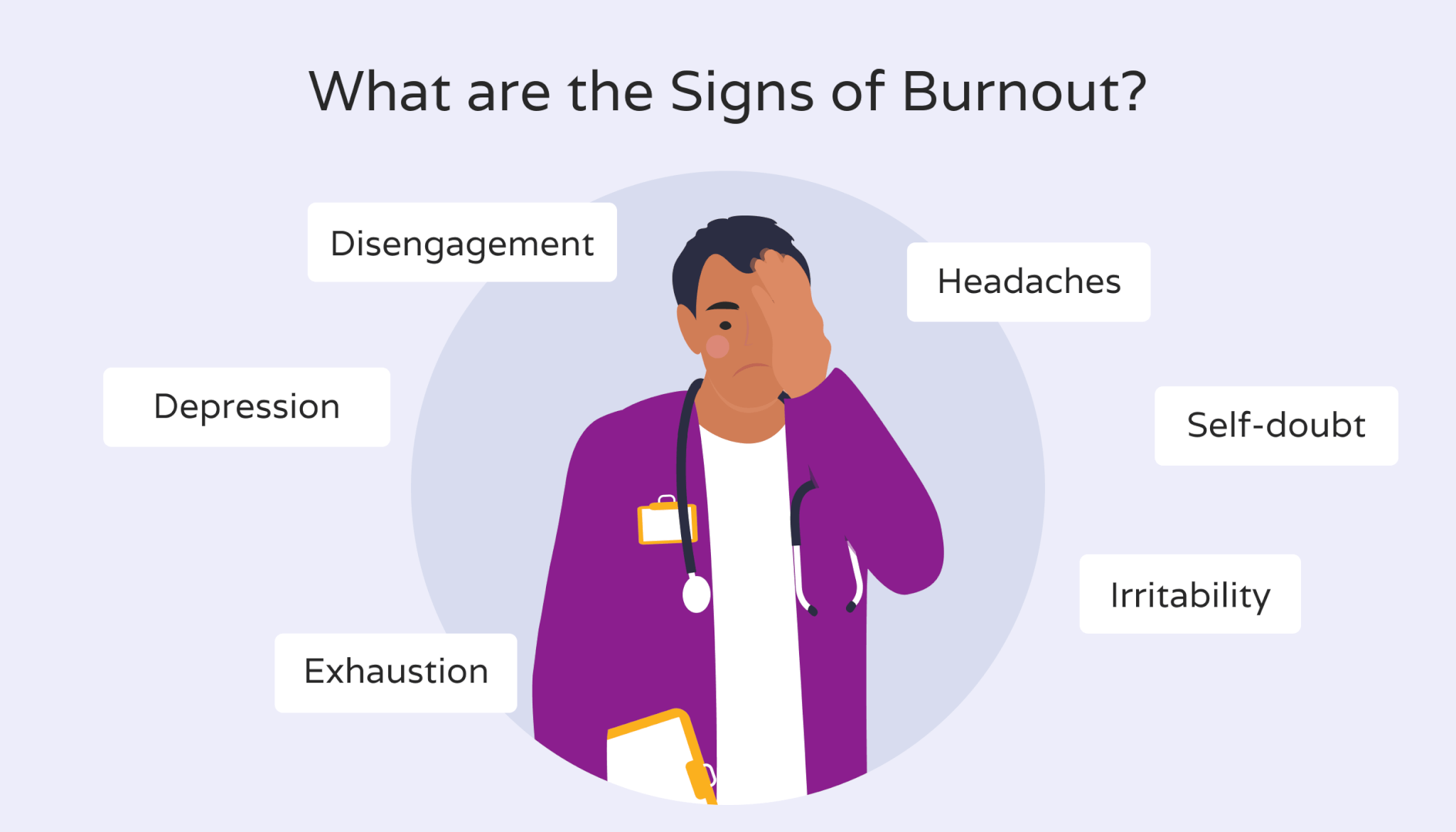
While burnout can be a result of different stressors, a scribe can give you the support you need if you're feeling overwhelmed.
By delegating accurate record-taking and other transcription and charting duties, you can reduce the workload of both physicians and other team members. You'll promote a better work-life balance and improve physician productivity.
5. Access patient history
Appointments are scheduled for a limited period of time. And in some situations, the patient may not be able to visit their preferred physician.
When the medical scribe maintains accurate patient history, the doctor will be able to make the right diagnosis. Even if they aren't familiar with the patient, they can still access information about all prior symptoms and treatments.
The scribe can look up any details for the physician before and during the appointment.
This means the patient won't have to repeat sensitive conversations. Plus, the physician can provide the best care without making any errors.
The appointment can be spent talking about any new symptoms, rather than the patient having to repeat themselves.
6. Perform general administrative tasks
Scribes can help with other clerical responsibilities. When there are no patients, they can use their skills to support the medical team in a range of areas.
Administrative duties can include answering phones and emails. For example, the scribe can make appointments and send reminders to patients.
Because they have a background in healthcare, they'll be able to communicate with patients in a professional manner. They can even sit behind the front desk so that your receptionist can take a break.
Alternatively, if you need to catch up on filing, simple bookkeeping, or data entry, the medical scribe can do these tasks for you.
7. Improve patient experience
Good physicians pride themselves on quality of care and patient satisfaction. Having a medical scribe transcribing during appointments can improve both of these things.
You know the physician can provide better care by focusing on the patient rather than the paperwork. Patients will be happier if their history is already there without having to provide lengthy background information.
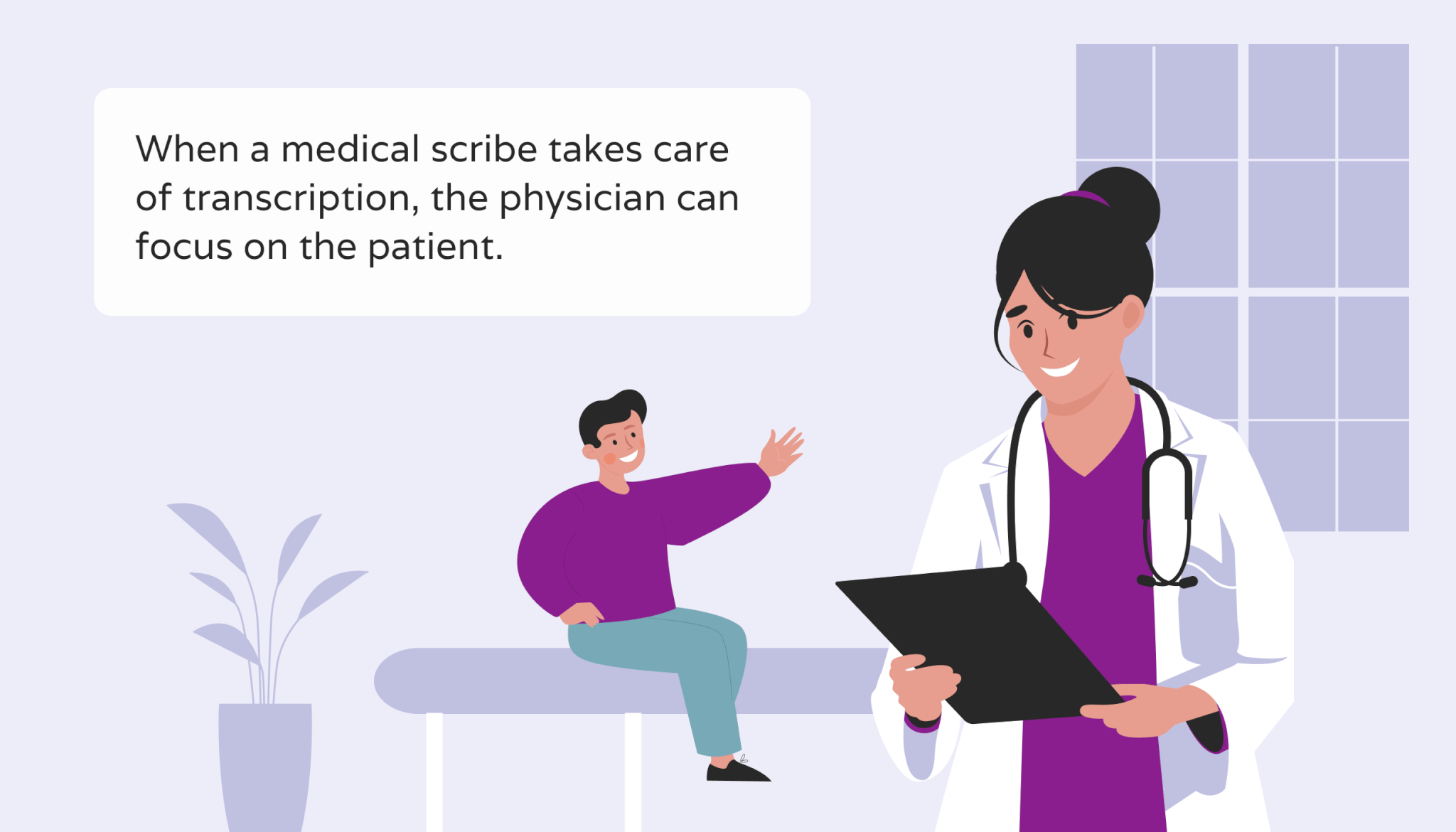
There are other benefits. For example, patients can take advantage of e-prescriptions. These prescriptions can be sent straight to the pharmacy from the healthcare provider. Plus, their referrals can be sent digitally to specialists.
Without having to complete paperwork after each appointment, healthcare providers can quickly move between patients. Wait times will be reduced, which is good news for patients and their doctors.
8. Reduce medical errors
Mistakes can happen, but a medical scribe can help reduce user error.
First, all information is updated in real-time. The patient's data will always be current, including contact details, prescriptions, and treatments.
Medical scribes will double-check the information as they transcribe. They'll use their medical knowledge to fix any obvious mistakes or ask the medical team for clarification.
Remember, patient health can be directly impacted when there are medical errors. Healthcare providers can rely on medical scribes to type quickly and with accuracy.
What are the benefits of a virtual medical scribe?
By now, you understand many of the benefits of hiring an in-person scribe. However, there's an alternative.
A virtual medical scribe is an option worth exploring for most practices today. Through Hello Rache, you can get access to off-site medical scribes with a medical background and HIPAA training.
A remote scribe will have the same core responsibilities. For example, they can still be present during appointments via video chat.
They can update electronic documentation, assist with clerical tasks, and translate medical terminology. Physicians can reduce paperwork and increase patient volume.
In addition, a virtual medical scribe can save you time and money. You won't need dedicated office space, and you only need to pay for the time you need.
There are no taxes or benefits to worry about, and you can use the same person each time.
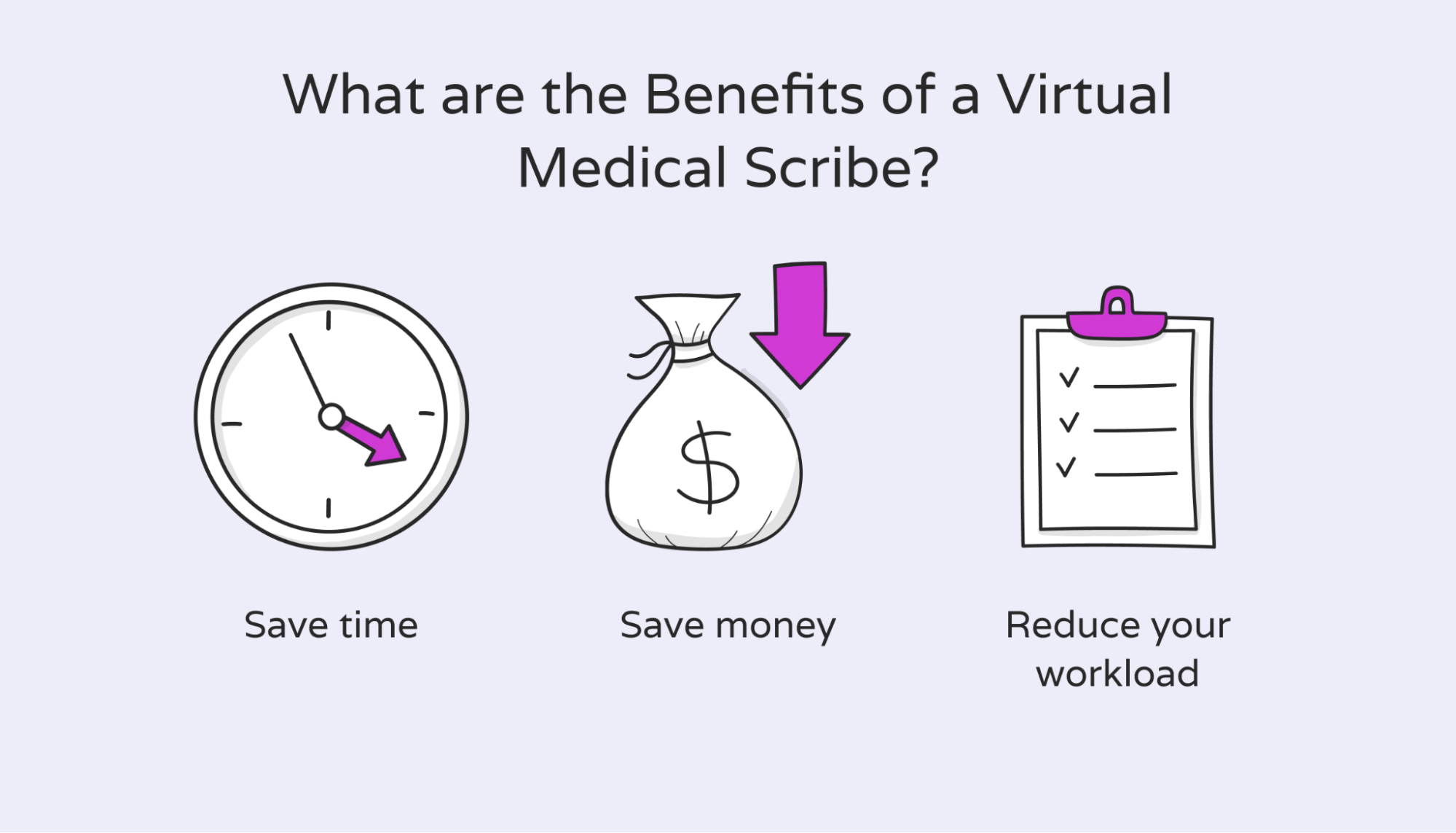
Whether you need temporary assistance, want to reduce the clerical burden, or like the flexibility of an online worker, why not go virtual?
Working with a medical scribe
Physicians have busy schedules. They juggle patients with administrative tasks, and achieving a balanced lifestyle is not always easy.
With the help of a medical scribe, physicians will have more time to treat patients. A scribe can take care of the paperwork, so you don’t have to.
Some of the key duties of a medical scribe include transcribing during appointments, translating medical terminology, and updating electronic health records.
Scribes ensure physicians can access accurate history. Scribes also perform general clerical tasks. Medical errors can be reduced, and physicians can lower their risk of burnout.
In-person scribes aren’t the only solution. Virtual healthcare scribes can be a smart alternative.
Want to learn more? Check out our virtual medical scribe service. For more informative articles, visit the Hello Rache blog.

